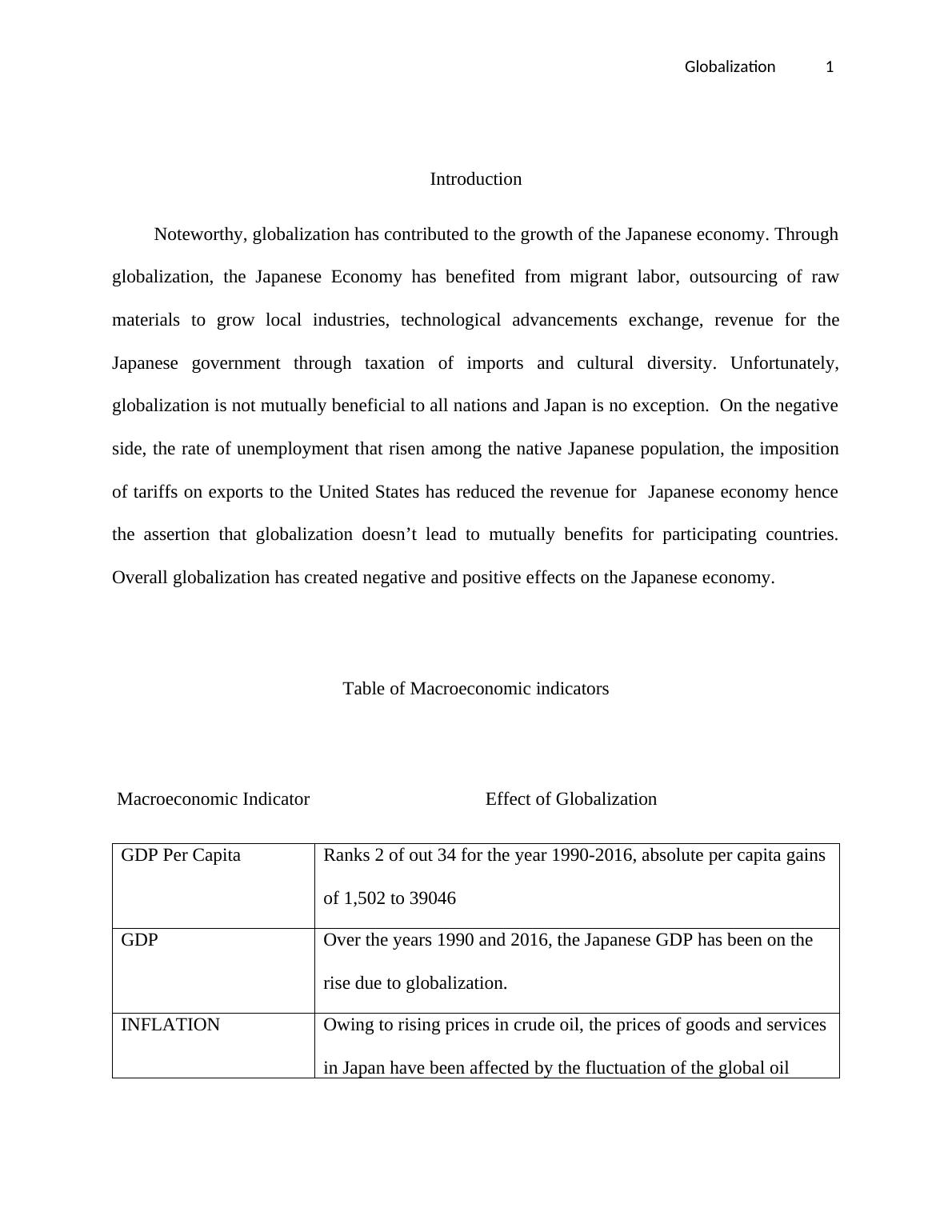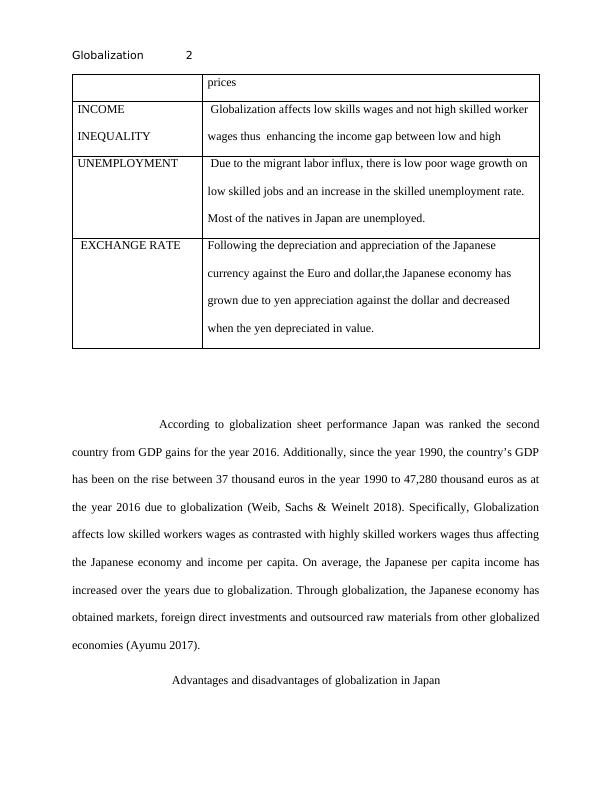Globalization and its Impact on the Japanese Economy
Added on 2022-12-26
8 Pages1374 Words77 Views
End of preview
Want to access all the pages? Upload your documents or become a member.
Politics of the Global Economy: Assignment
|22
|2574
|17
Case Study - Japanese Deflation
|7
|1758
|357
Migration and its Impact on the Australian Labor Market
|7
|1074
|325
Economic Policy and the Global Environment
|12
|3438
|322
Australia Economic Progress Report 2022
|7
|789
|22
BUSINESS PLAN FOR RUSSIA
|10
|2268
|318



